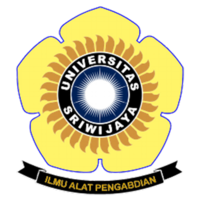STUDENTS’ PERSPECTIVES ON THE IMPLEMENTATION OF EXTENSIVE READING
Abstract
: For more than three decades, there have been plenty studies suggested the benefits of Extensive Reading (ER). However, the inclusion of ER in classes in Indonesia is not widely implemented. Moreover, most of the research on ER scrutinized the impact of ER in improving students’ vocabulary, language proficiency, motivation and so forth. There are few studies that explored the students’ voices regarding the implementation of ER. Therefore, this study investigated students’ personal reflection towards the ER in a 4 months reading class. Through a questionnaire and and the follow-up interview, this study examined 52 undergraduate students’ perspectives on (1) the influential factors in ER program, and (2) the students’ preferences regarding the classroom activities for ER. The result of the data analysis revealed that materials selection, text difficulty and teachers’ role are the most influential factors in the success of ER program. This study also found that teacher-student conference, questions-answers and personal reflection are students’ favorite activities during ER. The difficulties the students found during the ER are also discussed in this paper. Thus, the findings of this study would give pedagogical implications on the implementation of ER program in the future.
Full Text:
242-246References
Day, R. & Bamford, J. (1998). Extensive reading in the second language classroom. Cambridge: Cambridge University Press.
Day, R. & Bamford, J. (2002). Top ten principles for teaching extensive reading. Reading in a Foreign Language, 14(2), 136-141.
Dennis, D. V. (2008). Are Assessment Data Really Driving Middle School Reading Instruction? What we can learn from one student’s experience. Journal of Adolescent and Adult Literacy, 51, 578-587.
Ellis, R. & Shintani, N. (2014). Exploring Language Pedagogy through Second Language Acquisition Research. London: Routledge.
Kwon, H., Chang, K., Kim, Y., Lee, B. & Jeon, Y. (2017). Factors for Successful Implementation of Extensive Reading Program Using Online/Offline Blended English Library System in Schools. International Journal of Contents, 13 (4), 63-68.
Mikeladze, T. (2014). Extensive reading. Telavi: Telavi Lakob Gogebashvili State University
Renandya, W. A., & Jacobs, G. M. (2016). Extensive reading and listening in the L2 classroom. In W. A. Renandya, & Handoyo, P. (Eds.), English language teaching today (pp. 97-110). New York, NY: Routledge.
Suk, N. (2017). The effects of extensive reading on reading comprehension, reading rate, and vocabulary acquisition. Reading Research Quarterly, 52(1), 73-89.
Article Metrics
Abstract view : 590 times242-246 - 453 times
Refbacks
- There are currently no refbacks.
